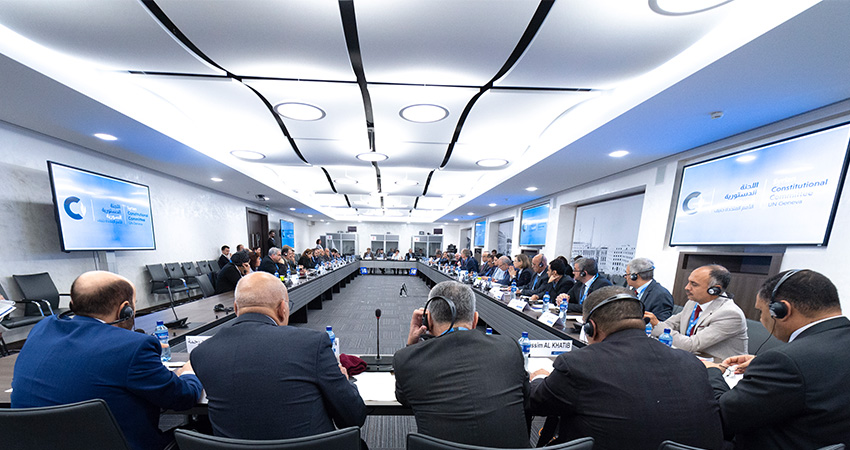Syrians for Truth and Justice, with the support of the National Endowment for Democracy, organized consultations and documented the perspectives of over 80 Syrian civil society representatives, activists, and civilians in Northeastern and Northwestern Syria on topics related to the constitution-building in Syria.
To share the results of our consultations in Syria, STJ is publishing this report as the third of a series of five exploring the following topics:
- The Formation and Responsibilities of the Syrian Constitutional Committee
- Inclusivity and Diversity
- Transitional Justice
- Governance and Judicial Systems
- Socio-Ecological Justice and Personal Experiences
In this report, we will discuss the role of the Constitutional Committee and the constitution-building process in addressing the repercussions of the Syrian conflict. Although the outcome of the Syrian conflict remains unresolved, the devastating toll it has had on all facets of Syrian life and society requires parties interested in the peace-building process to start developing ways to structure the reconciliation process of the country once it does resolve. The Syrian Civil War has been comparatively more devastating than other conflicts in the MENA region, with significantly high numbers of victims to address and peace-building being complicated by a significantly higher number of armed actors and agents of violence than in other post-authoritarian conflicts, such as Tunisia or Egypt[1].
The mechanisms implemented and topics dealt with during an early post-conflict situation are often referred to as transitional justice, representing actions that start dealing with the consequences of mass scale human rights violations. Syria should adopt measures to implement accountability for violations of human rights and war crimes, seek the truth of events that occurred over the last decade, ensure those affected by the war receive reparations for their damages, and implement structures that prevent such a war from recurring.
Even though this might not seem to directly relate to a constitution-building process and the result thereof, constitutions do more than establish a government and regulate its relationships with citizens. Namely, they can set the tone for a peaceful future by taking countering perspectives on historical cases of discrimination, violence, and exclusion[2]. Furthermore, to ensure a human rights-based approach to transitional justice, the process must be conceived and designed in the context of in-depth consultations with affected communities and civil society partners.
This paper reflects the views of Syrian respondents on how the constitution-building process can address consequences of the war by exploring how the process of amending or creating a constitution can initiate or encourage a transitional period in Syria.
The Syrian Constitutional Committee as Mechanism for a Transitional Period
We can interpret the current Constitutional Committee as a transitional body. Symbolically, the body embodies an (inter)national struggle defining the country’s past, interpreting its recent history, and shaping its future identity. Defining values through a new constitution contributes to this process. Regardless, a transitional body, or multiple, that would oversee more than constitution building could be beneficial for a wider range of purposes. Examples of these are truth commissions, a temporary court dealing with war crimes, and a transitional (interim) government.
66.3% of our participants believe that an interim governance body is a necessary goal for the Committee to introduce when announcing its findings. Moreover, 75.9% think that there should be a special committee and/or court that is independent and deals with the consequences and the needs of those affected by the conflict. The needs that should be addressed include but are not limited to: ensuring the return of refugees, starting security reforms, finding missing people, releasing prisoners, uncovering human rights violations, and letting victims share their stories.
To read the report in full as a PDF, follow this link.

